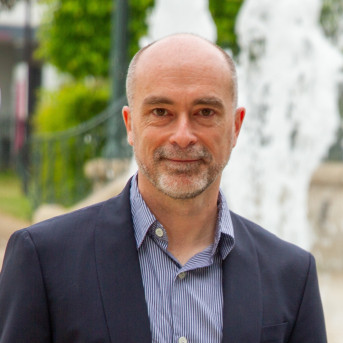Bioinformatics
Epigenetics research requires the manipulation of large datasets to provide the best possible description of the epigenomic landscapes of plant cells. Bioinformatics consolidates the diverse array of tools we employ for this purpose.
I have been leading the SPS bioinformatics working group since 2018. This group was created within the SPS (Sciences des Plantes de Saclay) network in response to the growing need for bioanalysis in our community of plant biology researchers. The group is made up of around twenty bioinformaticians from existing research teams across the five SPS institutes, whose roles are as follows:
• Establish concrete bioinformatics objectives, specifying needs in terms of skills, time and financial resources;
• Ensure that the projects selected meet the needs of the various SPS institutes in a balanced way;
• Create cohesion within the SPS community around bioanalysis issues.
To achieve these goals, we have set up a new team of three bioinformatian engineers recruited by SPS, who develop tools for researchers over 6-month periods (a call for projects is launched twice a year). We have also set up scientific events focusing on these issues, training courses for researchers and students from the SPS community, and an annual competition to award doctoral contracts to students.
Epigenetics research requires the manipulation of large datasets to provide the best possible description of the epigenomic landscapes of plant cells. Bioinformatics consolidates the diverse array of tools we employ for this purpose.
I have been leading the SPS bioinformatics working group since 2018. This group was created within the SPS (Sciences des Plantes de Saclay) network in response to the growing need for bioanalysis in our community of plant biology researchers. The group is made up of around twenty bioinformaticians from existing research teams across the five SPS institutes, whose roles are as follows:
• Establish concrete bioinformatics objectives, specifying needs in terms of skills, time and financial resources;
• Ensure that the projects selected meet the needs of the various SPS institutes in a balanced way;
• Create cohesion within the SPS community around bioanalysis issues.
To achieve these goals, we have set up a new team of three bioinformatian engineers recruited by SPS, who develop tools for researchers over 6-month periods (a call for projects is launched twice a year). We have also set up scientific events focusing on these issues, training courses for researchers and students from the SPS community, and an annual competition to award doctoral contracts to students.

Contacts
Epigenetic Natural VariationEmail : Nicolas.Bouche@inrae.fr
Tél : 0130833314